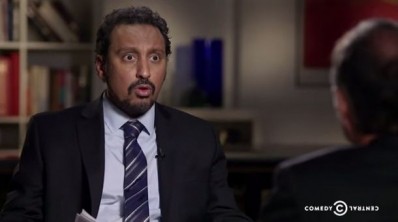Pope Francis weighs into the GMO debate
![Pope Francis: 'There remain a number of significant difficulties [around GM crops] which should not be underestimated.' Picture: L'Osservatore Romano](/var/wrbm_gb_food_pharma/storage/images/_aliases/wrbm_large/3/8/5/0/1470583-1-eng-GB/Pope-Francis-weighs-into-the-GMO-debate.jpg)
In last week’s encyclical - an open letter addressed to 'every living person on this planet' – the Pope wrote: “Although no conclusive proof exists that GM cereals may be harmful to human beings, and in some regions their use has brought about economic growth which has helped to resolve problems, there remain a number of significant difficulties which should not be underestimated.”
On genetic modification, he echoed the views of many scientists, who argue that we have been genetically modifying plants and animals for centuries to create crops and breeds that would not have occurred 'naturally': "It is difficult to make a general judgement about genetic modification (GM), whether vegetable or animal, medical or agricultural, since these vary greatly among themselves and call for specific considerations. The risks involved are not always due to the techniques used, but rather to their improper or excessive application.
"Genetic mutations, in fact, have often been, and continue to be, caused by nature itself. Nor are mutations caused by human intervention a modern phenomenon. The domestication of animals, the crossbreeding of species and other older and universally accepted practices can be mentioned as examples."
But he added: “The expansion of these [GM] crops has the effect of destroying the complex network of ecosystems, diminishing the diversity of production and affecting regional economies, now and in the future.”
In many places, following the introduction of these crops, he claimed, “Productive land is concentrated in the hands of a few owners due to the progressive disappearance of small producers.”
Val Giddings: This is nonsense
His comments have met with a mixed response from scientists, with some welcoming his acknowledgement that GM technologies should be judged on a case by case basis and that there is no conclusive proof they are harming human health.
However, his comments about large-scale agriculture and ecosystems went down less well.
Biotech supporter Val Giddings, Senior Fellow at the Information Technology & Innovation Foundation in Washington DC, told Politico that the argument that more land is in fewer hands because of GM technology was “nonsense”, adding: “The trends lamented here existed before GM technology was conceived, let alone introduced, and would continue if GM vanished overnight.
“In fact, GM is remarkable among recent agricultural innovations in that it is scale neutral. This is why, of the 18 million farmers growing GM seeds this year, 17 million are smallholders in developing countries. It is astonishing the pope's advisors missed this point."
A Pope against progress?
Responding to the encyclical in a blog post entitled, ‘A Pope Against Progress’, Mark Lynas (a vocal critic-turned advocate of GM crops); Ted Nordhaus and Michael Shellenberger (authors of Break Through: From the Death of Environmentalism to the Politics of Possibility) said it was encouraging that the Pope wanted a "broad, responsible scientific and social debate", but added:
"The encyclical inveighs against technological innovation, economic efficiency and the market. This is not a world where the poor might benefit from new technologies, whether better seeds or cell phones, or international trade.”
Professor: 'I am encouraged, not discouraged by the encyclical'
However, Drew Kershen, Earl Sneed Centennial Professor of Law (Emeritus), University of Oklahoma, College of Law, who specializes in agricultural biotechnology law and policy, told the Biofortified blog he was "encouraged, not discouraged by the encyclical".
He added: "The encyclical can be read favorably to agricultural biotechnology primarily because it does not condemn or attack science and technology. But at the same time, the encyclical clearly adopts a cautious approach to agricultural biotechnology.
"The encyclical is not against science or technology but worries about socio-economic concerns that I think are factually incorrect or overemphasized as 'significant difficulties'."
Read the encyclical in full HERE.









